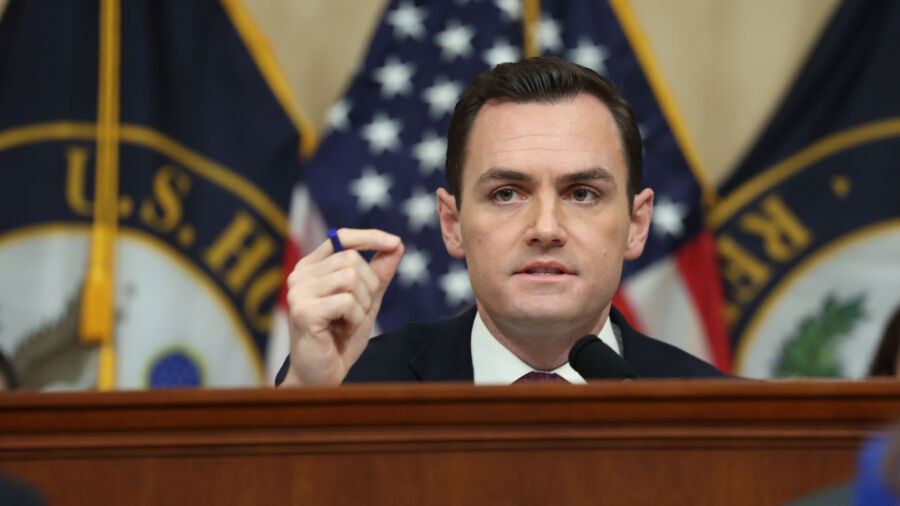A group of Republican lawmakers is advancing a new bill that would require universities, non-profit organizations and other institutions to divest from Chinese companies or risk losing their preferential tax-exempt status.
On Wednesday, the House Select Committee on Strategic Competition between the United States and the Chinese Communist Party (CCP) announced the Dump Investments in Troublesome Communist Holdings Act (DITCH Act). Chairman Mike Gallagher (R-Wis.) sponsored the bill, along with committee member Reps. John Moolenaar (R-Mich.), Rob Wittman (R-Va.), and Darin LaHood (R-Ill.), as well as Sen. Josh Hawley (R-Mo.).
Under the bill, any company incorporated or based in China, owned by a Chinese entity, or that has more than 10 percent of its stock owned by one or more Chinese entities would be prohibited from taking tax-exempt status in the United States. The bill would essentially require tax-exempt U.S. entities to curtail their ties with Chinese partner entities and shareholders.
“Universities, non-profits, public pension funds, and other institutions that want preferential tax treatment must choose: are they committed to their professed values or to financing a genocidal communist regime?” Mr. Gallagher said of the bill.
Justifying legislation that impacts the tax status of any Chinese entity and many U.S. entities with ties to China, Mr. Moolenaar asserted that the Chinese regime enforces a “military-civil fusion” and that this fusion erodes the barrier between the CCP and Chinese business entities.
“Under the CCP’s military-civil fusion there is no difference between doing business with CCP companies and doing business with China’s military,” Mr. Moolenaar said.
The DITCH Act does provide some limited carve-outs through which the U.S. Treasury secretary may grant a waiver to a tax-exempt entity “if their need to hold certain Chinese assets outweighs the national security risk.” The Treasury secretary would have to publicize the reasoning behind granting the waiver and entities with waivers would have to file regular reports on their activities.
Mr. Hawley said entities may enjoy preferential tax-exempt status when their work promotes the public good of the United States. But, the Missouri senator said, “Investing in China does the opposite: it advances the economic ambitions and military modernization efforts of the Chinese Communist Party while selling out American workers and values.”
Growing Calls For China Divestment
The DITCH Act is one of several recent efforts to counter Chinese influence in the United States.
Lawmakers from both sides of the political aisle have gathered in support of legislation that would block Chinese investors from buying up U.S. farmland. The idea has caught on at both the federal and state level.
A provision was also added to the Senate version of the 2024 National Defense Authorization Act last week that would require American tech companies to notify the Treasury Department of any dealings with China-based companies.
Juscelino Colares, a professor at Case Western Reserve University School of Law and co-author of the book Restructuring Trade Agreements, told NTD News that it’s “imperative that we must decouple strategically from China.” Mr. Colares said the United States needs to consider how to address both inbound and outbound investments between the United States and China.
“We have to have a national policy on outbound investment, and I think we are converging to that,” he said. “Beyond just looking at trade balances—which is pretty much horrible, it’s completely manipulated by China—we also have to look at why we make it so favorable to invest in China still. And what we need to do as well in inbound investment.”
Mr. Colares endorsed the DITCH Act but called for lawmakers to look beyond just tax-exempt entities, to other areas of investment.
The professor admitted efforts to divest from China will come with some “costs” and “displacement” but said the transition has already been going on in the years since former President Donald Trump was elected in 2016. Mr. Colares said before the Trump administration, portions of both the Republican and Democratic parties were “highly lobbied and highly pro-international trade, as if we were not trading with a country that clearly sees the world in the zero-sum, in that perspective that whatever we gain is their loss, and whatever they gain is our loss.”

